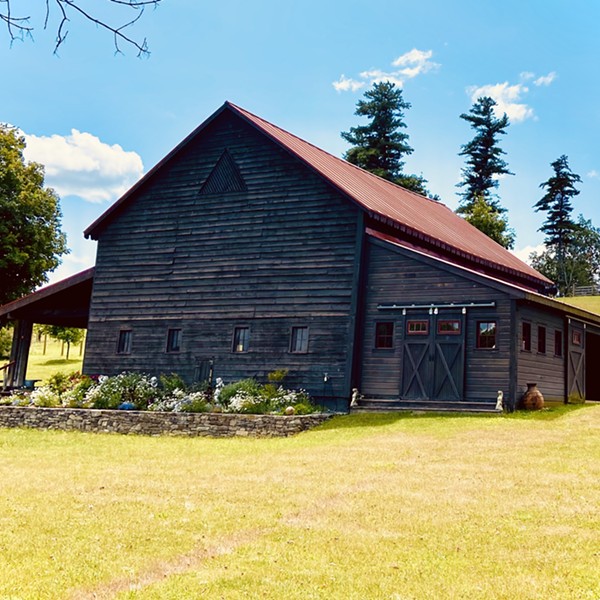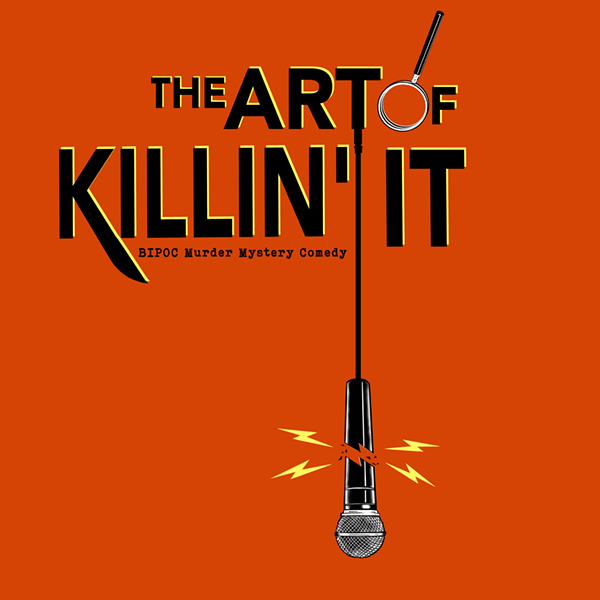
Regicide, fratricide, filicide: The Medea myth is a bloody affair.
Though different interpretations exist—best known are those by the Greek playwrights Euripides and Seneca—most versions are consistent in ascribing to Medea acts of startling barbarity. Of course, in fiction, as in history, the killing of a king is pretty standard stuff. The killing of one’s brother, too, crosses mythic cultures: Cain and Abel, Osiris and Set, Romulus and Remus. But the purposeful murder of one’s own children tests even the bloody bounds of fable. When Dutch theater troupe Dood Paard brings its version of the tale, “MedEia,” to MASS MoCA in North Adams, Massachusetts, it promises no skimping on the skewering.
The play is presented as part of “NL: A Season of Dutch Arts in the Berkshires,” a summer-long program of arts from the Netherlands presented up and down Berkshire County. The program offers examples of contemporary Dutch aesthetics ranging from new music, jazz, and dance, to art, film, even lectures.
Medea’s poor parenting is not unprecedented (Agamemnon and Hercules, we’re looking at you), but in Seneca’s rendition, especially, her brutality is chilling. Bad behavior makes for good drama, though; so, it’s not surprising Dood Paard looked to Seneca for source material. What is a little surprising, however, is founding member Oscar van Woensel’s explanation of what it was about the Medea story that attracted his group.
“The main reason was that we wanted to do a performance about love,”
he explains.
Love? Are we talking about the same Medea? Medea, the sorceress of Colchis, who murders her brother and then spreads his dismembered body in the wake of her fleeing ship to delay her pursuing father? Who tricks her enemies into boiling alive their family members? Who impales her children in front of her husband? That Medea?
It seems unlikely, but then, so too does Dood Paard. The troupe was founded in Amsterdam in 1993 by a trio—later a quartet—of acting students who decided it was better not to work with a director. They wanted a highly personalized and collaborative relationship with one another and with their material; directors had an inconvenient habit of mucking up the process by introducing their own ideas. It’s an unconventional approach that could be viewed easily as arrogance, irreverence, or brilliance, and the critical material regarding Dood Paard—which translates as “dead horse”—bears this out.
“At times the spare, predominantly somber presentation seems almost like a parody of the avant-garde,” one reviewer wrote of “MedEia.” “But these three are very sly.” Certainly, there seems considerable slyness in van Woensel’s notion of a love story, and considerable intensity. He allows that Dood Paard often seeks inspiration in Greek and Roman myths because they are, “very pure, very extreme, and very specific.”
In “MedEia,” the purity, extremity, and specificity are accentuated by presenting the tale entirely from the perspective of the chorus, which, van Woensel points out, is helpless to act and “is not able to do anything but talk and cry.” Further, the play is done in what van Woensel calls “Euro-English” (“simple pop-song English, with simple grammar and not too many different words,” he says.) This streamlined language, created by the troupe, includes lyrical excerpts from songs by Joy Division, The Doors, Twisted Sister, and Public Enemy. It’s a way, says van Woensel, of reiterating the basic structure and thrust of the Medea myth: “Pop songs refer to a collective memory and they refer to love in a very direct and simple way—the same as in Greek mythology.”
In other words, love will tear us apart—and likely spread our remains in its wake.
Dood Paard’s “MedEia” will be performed at MASS MoCA on August 25 at 8 pm.
(413) 662-2111; www.massmoca.org.
















